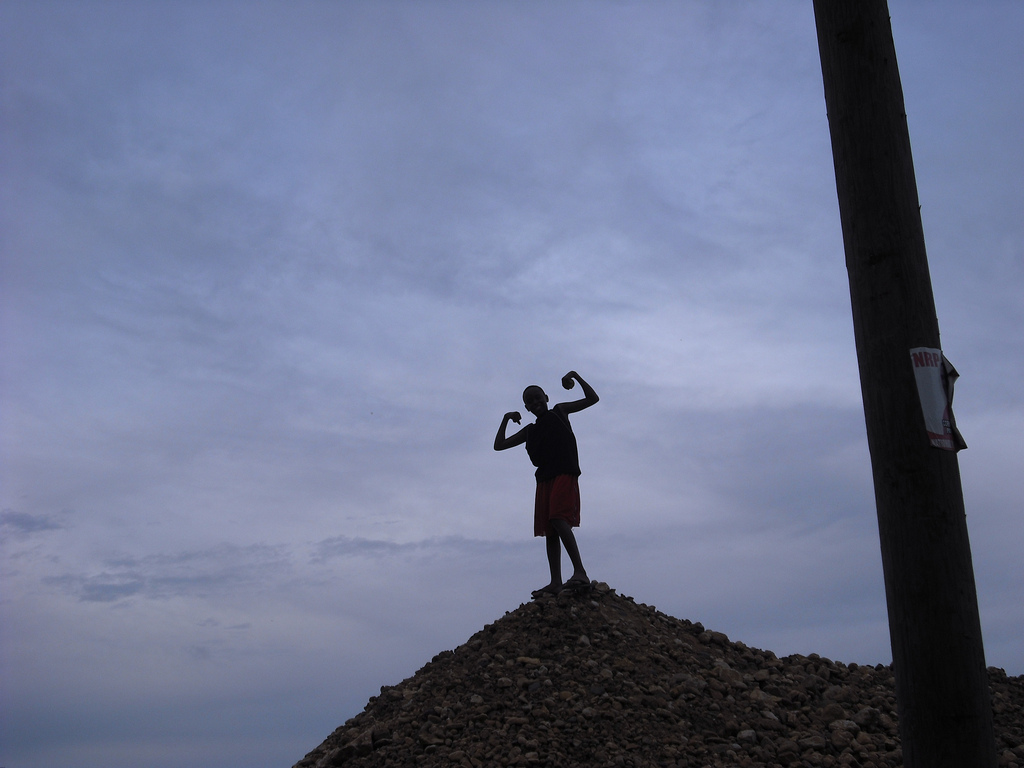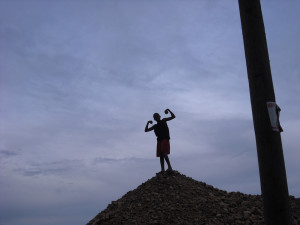One of the activities that I ask my clients to do, is to write down what they feel are their strengths. I ask for 5, and the process has been very surprising. Why?
They have a hard time.
And some people, they have a REALLY hard time. Knotted eyebrows, frowns, staring into nothingness, and “oops I need another piece of paper” hard.
After the activity, I ask them what gave them such a hard time, and the answers are versions of the following statements:
“I’m not sure that these are my strengths.”
“Is ___________ a strength?”
“Sometimes, ____________ is a strength, sometimes a weakness. Can that be considered a strength?”
People are unsure of their talents and strengths, and unsure of what can be considered strengths. They usually see only one side, one aspect, one quality, of the strengths that they have, and don’t acknowledge, don’t see, what else they’ve got.
Or people know they have a lot of strengths, but they’re unsure of which 5 can be considered to be their strongest, to represent them and who they are in the activity.
On the flip side, when I ask people to write down 5 of what they consider to be their weaknesses, those 5 pieces of paper gets filled up pretty fast. I’ve even had participants ask for more paper to write down more of their weaknesses.
We focus too much on what we lack, rather than what we have. In work, school, or even at home, it’s about what we’re weak at, and how to fix that, rather than on what we’re good at, and how to develop those.
How much different would our lives be if we played to, and used our strengths, instead of shoring up our weaknesses?
You would be more confident.
There is a different feeling when you know you’re good at something, when you have the confidence to go out and apply it.
You hold and present yourself a different way, speak a different way, and even listen and think a different way.
I’m confident in my ability to relate to people one-on-one, and to have and hold deep conversations. I also know that I have a hard time meeting a lot of new people at once and “working the room” so to speak.
So when, at a previous job, I was given the task to network in a room full of strangers, I really didn’t know what to do. I felt shy, fearful, and felt my energy being drained at a much faster pace than I expected. I felt I was able to accomplish what I needed, but at much greater cost.
But when I was given the task to talk to our clients in an advisory position, one-on-one, or one-on-small groups, I absolutely enjoyed that task. It felt so smooth and effortless.
I felt so energized and confident talking to the clients, finding out what they wanted, their pains, how we could help them, and getting to know people on a deeper level. With confidence, I did really well in that assignment.
Knowing what and where you’re good at, with certainty, builds confidence. Putting yourself in situations where you’re able to use those strengths, more so.
You would make better decisions.
And I say this because there are times we choose to be in situations where we have a hard time, because what we’re doing there isn’t our strength, or even goes against our strengths.
I know someone who is a very principled person, with really deep-rooted beliefs of service, generosity, kindness, and fairness.
Being motivated by beliefs and principles, is also a strength.
And this friend of mine was in a high paying job, and loved by members of the community and company. She was well loved, and people looked up to her, and counted on her.
However, deep down, she felt that her deepest beliefs were not aligned with where the company wanted to do. Despite the benefits, the pay, the comfort, the community, she resigned.
Now, she’s in development work, which is in total alignment with her principles and beliefs. Those very same principles and beliefs push her to be the best at what she does, and provides her unbelievable energy and motivation to do what she does.
Because of her strengths, she made a great decision that changed her life.
You would be more effective at what you do.
Knowing your strengths would help you become more effective at what you do, by giving you options and tools with which to accomplish what you want.
I know that one strength of mine is that I can go into a situation, pick the situation apart, diagnose, and come up with solutions to the problem. That strength of mine has served me well in the many consulting, advising, and training roles I’ve had over the years.
Because I know that’s a strength of mine, I also know to put myself in situations where I can use that particular strength. I then feel more confident with what I’m doing, which also contributes to me being effective at what I do.
And when I mean effective in this case, It’s offering and implementing real solutions to people’s problems, and making a positive impact on people’s lives.
You would be happier
Knowing your strengths lead to providing more happiness.
According to Don Clifton, American psychologist, and “grandfather of Positive Psychology” :
There is a strong connection between:
Who people are, and what they do best
What they do, and how they feel
How they feel, and how they perform
And if you know your strengths, what you do best, you can then put yourself in situations where you are able to use your strengths and your talents, what comes naturally to you, and perform at your best.
Have you ever had a moment where things just came naturally to you? It was easy to learn and pick up? It felt effortless?
I find it hard to “work the room” in a networking event, but I have a friend who is gifted, a natural at it. His strengths lend him to enjoying the moment, and doing his best in similar situations.
Ever heard of the statement “Like a fish out of water”? Well, fishes out of water, as far as I can tell, aren’t very happy.
They’re dying.
Know your strengths.
How then do you get to know your strengths?
You can recall back to childhood experiences, explore and try a variety of different things, and even find out what you easily learn. All of which take experience and time, and you may miss something, similar to the way we only focus on several aspects of what we have.
Another way is to take the Clifton Strengthsfinder, invented by Don Clifton, which is an online assessment which will reveal your top 5 Strengths Themes – your talents, what comes naturally to you, which is your areas of greatest success.
There are 34 talent themes, each with their own name, definitions, applications, and gifts. My Top 5 is Restorative, Learner, Connectedness, Relator, and Responsibility. Find out more here.
Also, along with taking the assessment, is to be coached by a Certified Strengths Coach, who will support you in your journey of discovering, knowing, and using your strengths to get meaningful results.
I’ve taken the assessment, and have been coached as well. The results and coaching have had great impact on me, especially in my personal and professional life. I’ve even become a Gallup-Certified Strengths Coach.
If you’re interested to know more, you can drop me an email here: buildfreedom@fredriclipio.com
If you’re looking for other Certified Strengths Coaches in the Philippines, you can check out this link here.
Don’t be the fish out of water, dying slowly.
Know your strengths.
Do you know what your strengths are? Please share in the comments below!
Acknowledgements:


[…] They’re a shining beacon of strengths. Of their talents and capabilities. […]